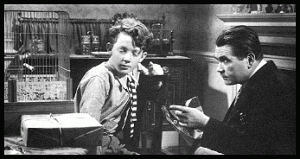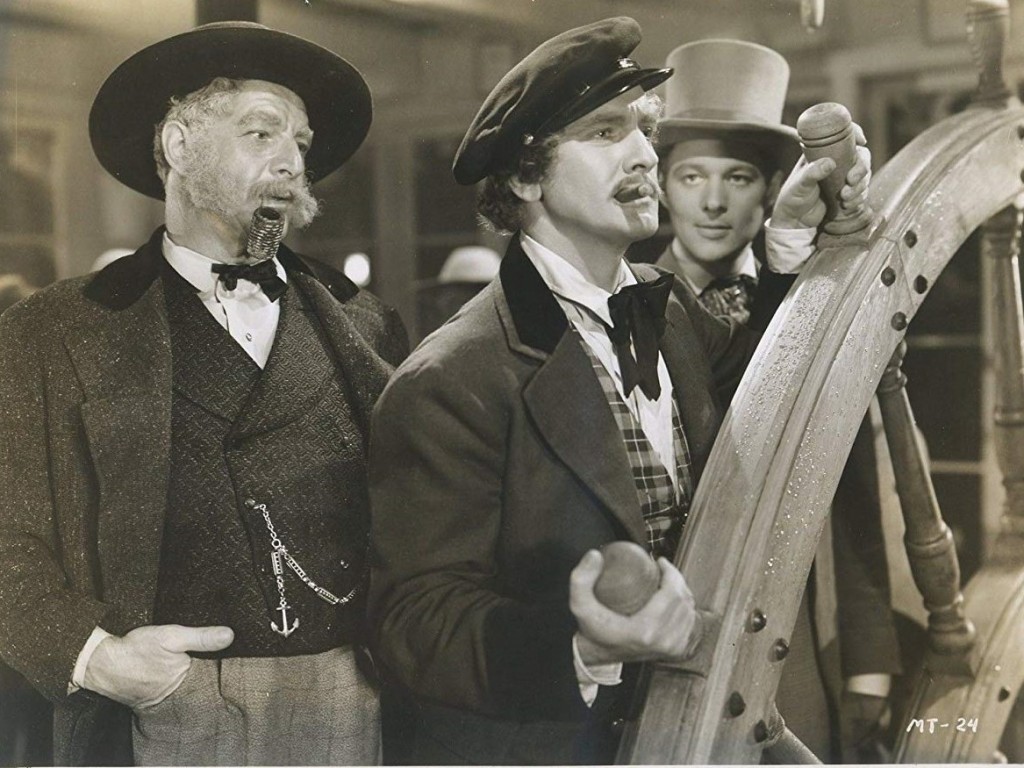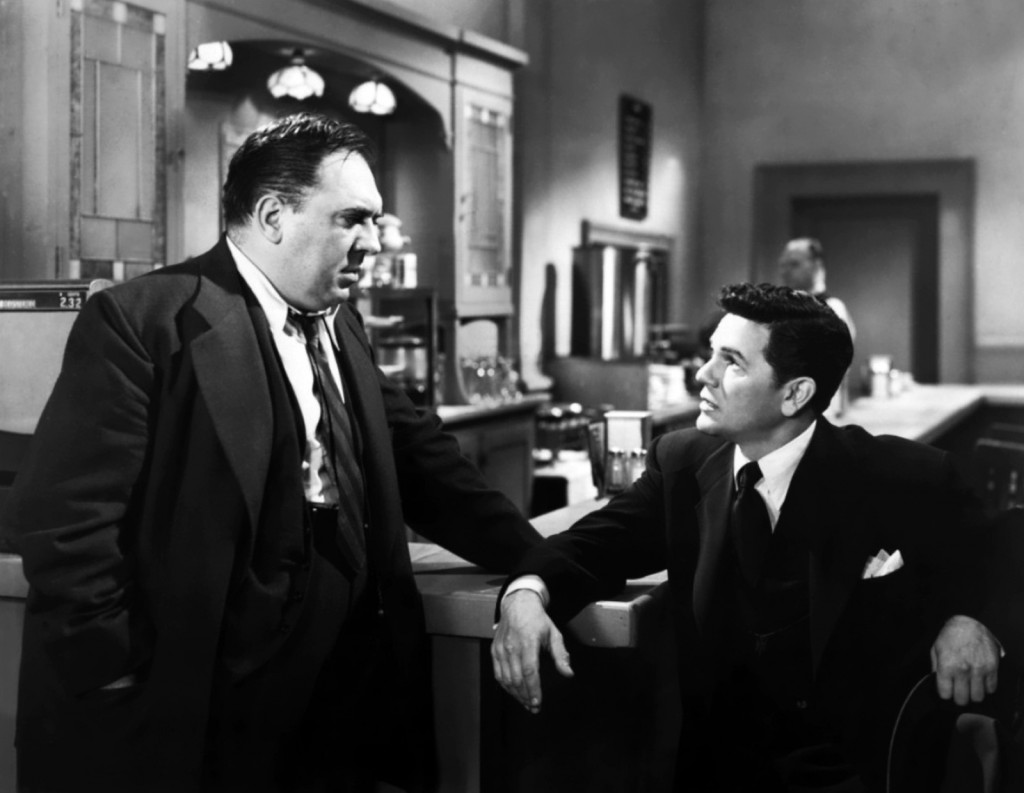 This one is no longer neglected. It is now well-known as a “film noir” gem. IMDB states that “In order to show cinematographer Geprge Barnes how he wanted the film to look, director Abraham Polonsky gave him a book of Edward Hopper’s Third Avenue paintings.” John Garfield is very good in the film, but it is stolen by character actor Thomas Gomez. Pay special attention to the scene where Gomez’s character is “rubbed out” if you want to see script, performance, camera, lighting and editing working in perfect harmony.
This one is no longer neglected. It is now well-known as a “film noir” gem. IMDB states that “In order to show cinematographer Geprge Barnes how he wanted the film to look, director Abraham Polonsky gave him a book of Edward Hopper’s Third Avenue paintings.” John Garfield is very good in the film, but it is stolen by character actor Thomas Gomez. Pay special attention to the scene where Gomez’s character is “rubbed out” if you want to see script, performance, camera, lighting and editing working in perfect harmony.
Category Archives: DU - Viewing 2006 - Page 2
(Polonsky 1948) Force of Evil
(Kubrick 1958) The Killing
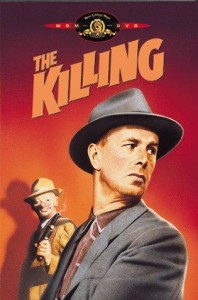 This was Stanley Kubrick’s first feature film, a low budget crime thriller. Apparently the producers thought that its non-linear story sequence would be incomprehensible to an audience, and did not promote it. But there are some very good sequences in this, and the acting, by unknowns and “B” stars (Stirling Hayden, Coleen Gray, Vince Edwards, Elisha Cook), is quite good. Elisha Cook’s performance is particularly impressive.
This was Stanley Kubrick’s first feature film, a low budget crime thriller. Apparently the producers thought that its non-linear story sequence would be incomprehensible to an audience, and did not promote it. But there are some very good sequences in this, and the acting, by unknowns and “B” stars (Stirling Hayden, Coleen Gray, Vince Edwards, Elisha Cook), is quite good. Elisha Cook’s performance is particularly impressive.
(Kazan 1955) East of Eden
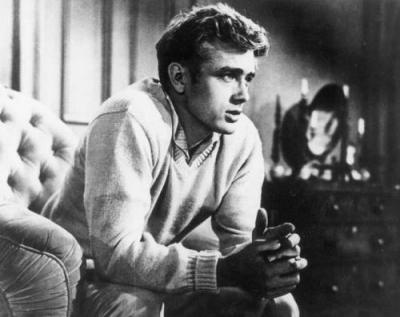 I must admit that James Dean’s performance was as amazing as all the film books say, though it is hard to feel much sympathy for the extremely annoying character he portrays, and hard to see why this character was so admired. Raymond Massey’s subtle performance should not be ignored. The first would not have worked without the other. Elia Kazan’s direction balances intimacy with a sense of grandeur, and manages to make a very talky book into a watchable film.
I must admit that James Dean’s performance was as amazing as all the film books say, though it is hard to feel much sympathy for the extremely annoying character he portrays, and hard to see why this character was so admired. Raymond Massey’s subtle performance should not be ignored. The first would not have worked without the other. Elia Kazan’s direction balances intimacy with a sense of grandeur, and manages to make a very talky book into a watchable film.
(Anderson 2004) The Life Aquatic With Steve Zissou
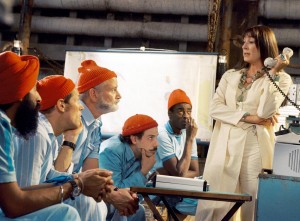 This is another peculiar film starring Bill Murray. He plays Steve Zissou, a famous underwater personality of the Jacques Cousteau type. His muddled relationships with a wife, crew, business associates, former lovers and a possible son is explored against the backdrop of improbable adventures. Everything is made to look unreal, as if a Hergé comic book had been brought to life. The pacing of Wes Anderson’s film is strange, with sudden bursts of activity starting and stopping unexpectedly. I liked the film, mostly because it doesn’t much resemble anything else, and it seems to be sincere. There are some genuine moments of feeling, and some effective satire. But it came and went in the theatres, barely noticed. I was pleased to see a grown-up Bud Cort (Brewster McCloud; Harold and Maude) in a minor role.
This is another peculiar film starring Bill Murray. He plays Steve Zissou, a famous underwater personality of the Jacques Cousteau type. His muddled relationships with a wife, crew, business associates, former lovers and a possible son is explored against the backdrop of improbable adventures. Everything is made to look unreal, as if a Hergé comic book had been brought to life. The pacing of Wes Anderson’s film is strange, with sudden bursts of activity starting and stopping unexpectedly. I liked the film, mostly because it doesn’t much resemble anything else, and it seems to be sincere. There are some genuine moments of feeling, and some effective satire. But it came and went in the theatres, barely noticed. I was pleased to see a grown-up Bud Cort (Brewster McCloud; Harold and Maude) in a minor role.
(Cocteau 1946) La belle et la bête
 Jean Cocteau’s “Beauty and the Beast” has long been a favourite of film-makers because of its inventive use of effects and its visual charm. But it has a literary strength, as well. It conveys the feeling of folktale. It has the undercurrents of sexual tension, danger, and cruelty that of genuine folklore. Cocteau employs all the traditional folkloric techniques, such as the pattern of three-fold repetition, which a modern story-teller would eschew. He realized that film was closer in techniques and sensibility to the folktale than to the modern novel.
Jean Cocteau’s “Beauty and the Beast” has long been a favourite of film-makers because of its inventive use of effects and its visual charm. But it has a literary strength, as well. It conveys the feeling of folktale. It has the undercurrents of sexual tension, danger, and cruelty that of genuine folklore. Cocteau employs all the traditional folkloric techniques, such as the pattern of three-fold repetition, which a modern story-teller would eschew. He realized that film was closer in techniques and sensibility to the folktale than to the modern novel.
(Hitchcock 1936) The Secret Agent; (Hitchcock 1936) Sabotage
Two fascinating early Hitchcock films both from 1936. The Secret Agent is rather clumsily plotted but has some charm. It is startling to see John Gielgud as a handsome young romantic lead, and Peter Lorre provides an eccentric performance as a sort of generic comical “foreigner”. Sabotage provides a frisson to today’s viewer. The plot involves a terrorist planting a bomb on a London bus. Hitchcock pulls no punches: he builds up a likable child character, then brutally blows him up, halfway through the film. It would have been impossible to do this in an American film until decades later. But audiences did not like it, and Hitchcock later considered it a lapse of judgement. The terrorist in the film employs a liquid explosive of the same type as seems to have been used in the foiled multiple airplane bombing of the last few days.
(Scorcese & Wilson 1995) A Personal Journey With Martin Scorsece Through American Movies
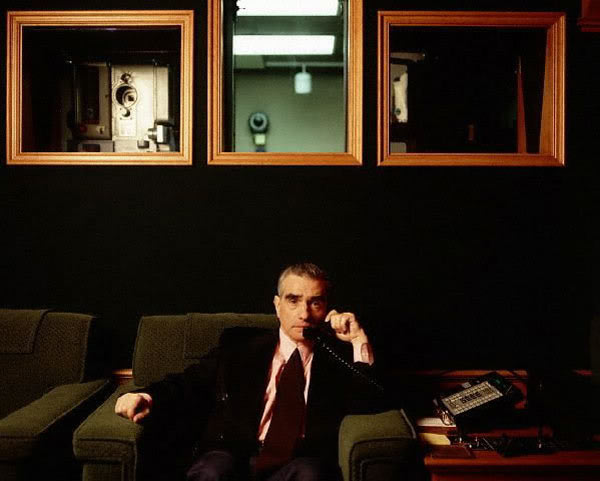 Scorsese is a highly cultured, literate and civilized man, without pretension and remarkably free of snobbery. In this study of the American films that entertained and influenced him, he opens our eyes to the artistry of many Hollywood films ― westerns, gangster films, musicals, and low-budget thrillers ― that film historians and critics would sneer at. This four hours long documentary undermines that obnoxious tendency in all the arts, the glorification of an official canon of “classics”. His analysis of films by forgotten and underrated directors is sharp, but affectionate.
Scorsese is a highly cultured, literate and civilized man, without pretension and remarkably free of snobbery. In this study of the American films that entertained and influenced him, he opens our eyes to the artistry of many Hollywood films ― westerns, gangster films, musicals, and low-budget thrillers ― that film historians and critics would sneer at. This four hours long documentary undermines that obnoxious tendency in all the arts, the glorification of an official canon of “classics”. His analysis of films by forgotten and underrated directors is sharp, but affectionate.
(Polanski 1999) The Ninth Gate
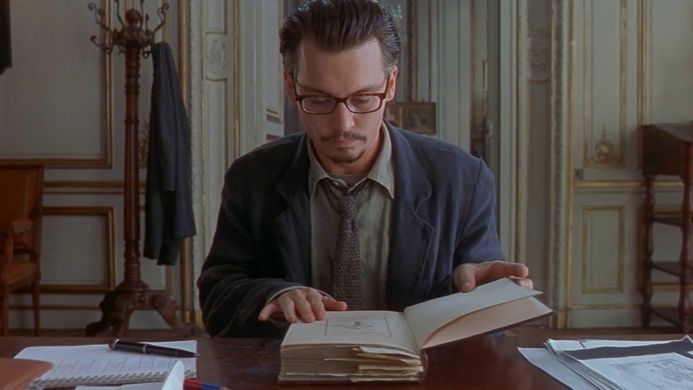 I don’t understand what motivated Polanski to make this muddled supernatural thriller. It’s the sort of thing that works fine in a book, but makes a terrible movie. You can sort of guess what is going on at the end, but doubtless most of the audience left the theatres scratching their heads. A pity, because Johnny Depp’s performance is, as usual, extremely professional. He wrings as much out of the emotionally ambiguous character as he can. Most of us who love books would have been charmed to see an entertaining film in which rare book collectors and dealers are given a fictional life involving murder, intrigue, and hot sex, however inaccurately the technical details of book collecting are presented. But this film doesn’t entertain. Half-way through, one becomes bored with the enigmas, sensing, correctly, that they will not lead to any interesting conclusion.
I don’t understand what motivated Polanski to make this muddled supernatural thriller. It’s the sort of thing that works fine in a book, but makes a terrible movie. You can sort of guess what is going on at the end, but doubtless most of the audience left the theatres scratching their heads. A pity, because Johnny Depp’s performance is, as usual, extremely professional. He wrings as much out of the emotionally ambiguous character as he can. Most of us who love books would have been charmed to see an entertaining film in which rare book collectors and dealers are given a fictional life involving murder, intrigue, and hot sex, however inaccurately the technical details of book collecting are presented. But this film doesn’t entertain. Half-way through, one becomes bored with the enigmas, sensing, correctly, that they will not lead to any interesting conclusion.
(Briand 2002) La Turbulence des Fluides
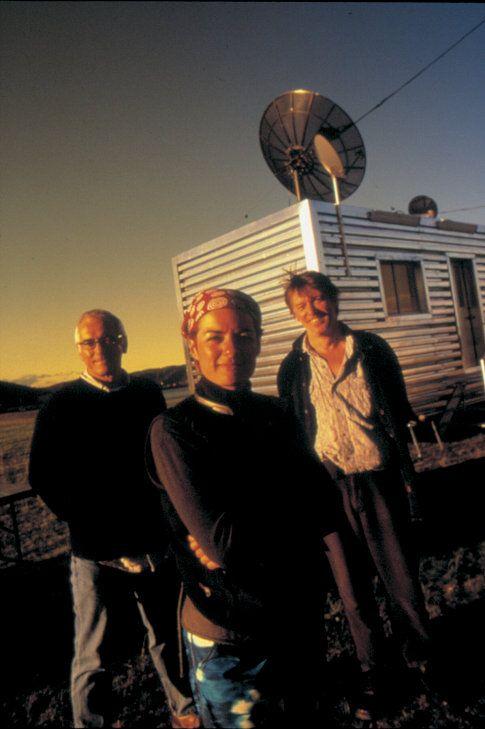 I rather like this attempt at a Shyamalanesque thriller by director Manon Briand. Unfortunately, it’s way too slow-moving to satisfy a big audience, and it telegraphs its ending. It focuses on a seismologist, long exiled to Japan, who returns to the town of her birth, Baie-Comeau (on the remote North Shore coast of Quebec) to investigate some anomalies. The town is haunted by the death of a woman in a freak accident, and is full of psychological, as well as physical anomalies. While the film is weak as drama, it is delightful visually and sensually. Both the heroine, Alice Bradley (played by Pascales Buissière) and her jealous lesbian friend (played by Julie Goyet) are extremely beautiful.
I rather like this attempt at a Shyamalanesque thriller by director Manon Briand. Unfortunately, it’s way too slow-moving to satisfy a big audience, and it telegraphs its ending. It focuses on a seismologist, long exiled to Japan, who returns to the town of her birth, Baie-Comeau (on the remote North Shore coast of Quebec) to investigate some anomalies. The town is haunted by the death of a woman in a freak accident, and is full of psychological, as well as physical anomalies. While the film is weak as drama, it is delightful visually and sensually. Both the heroine, Alice Bradley (played by Pascales Buissière) and her jealous lesbian friend (played by Julie Goyet) are extremely beautiful.
